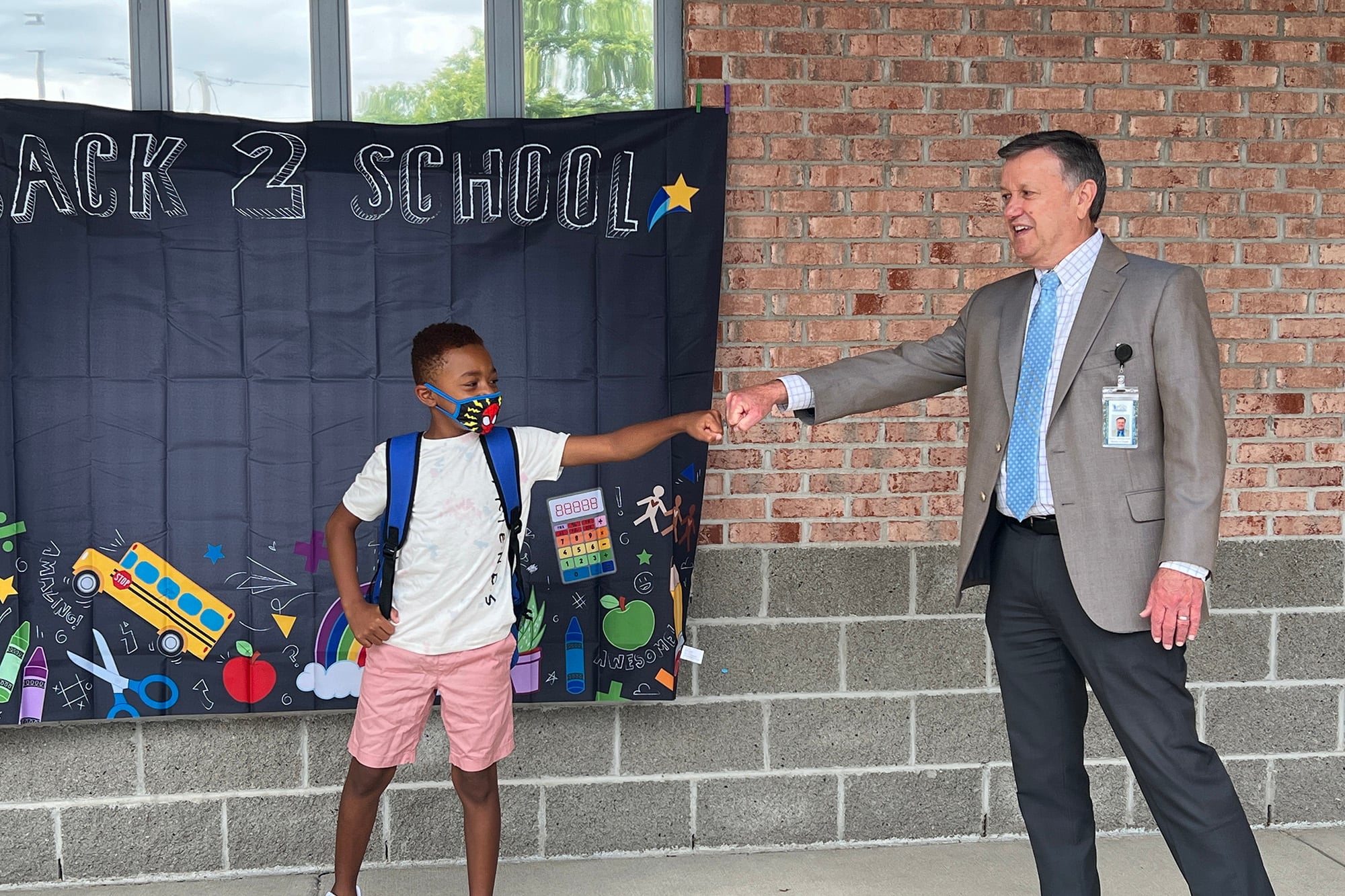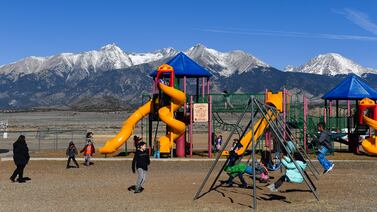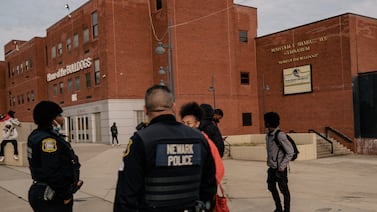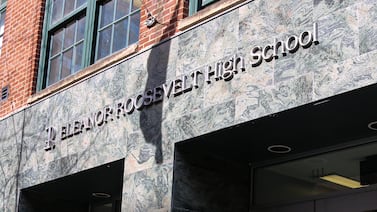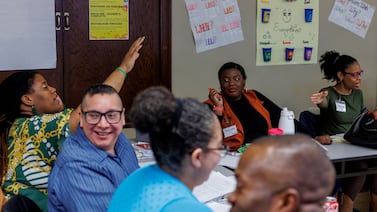If his school community had to choose between himself and its nine therapy dogs, David Snowden jokes that “the director of schools would have to go.”
Now in his 23rd year as leader of Franklin Special School District, south of Nashville, Snowden has championed the canine program since Mattie Grace became the school system’s first trained therapy dog in 2018.
Five years later, each of the district’s eight schools has a canine companion on site, as does its central office, to provide emotional support to students and staff.
Snowden says the program is popular — and needed. Even before the pandemic, faculty and staff were seeing an increase in student anxiety, depression, and mental distress.
But all of the comfort and joy brought by the pups wouldn’t be financially possible if Snowden hadn’t donated his performance bonus back to his home district to help cover the cost. It’s a practice he’s done every year since coming to his suburban district in 2001 — to acknowledge and reward the collective work of the students, teachers, and staff who surround him.
“It takes a team effort to be successful,” he explained.
In all, Snowden has returned about a quarter of a million dollars in bonus money to pay for various needs over the years, whether to hire tutors, buy chargers for Chromebooks, or provide water bottle refilling stations during the pandemic.
His colleagues call him a “true servant leader,” but his peers across the state recently gave him another title: Tennessee Superintendent of the Year. Because of the honor bestowed on him in September by the state’s superintendents organization, Snowden will represent Tennessee in February in San Diego at the national competition sponsored by the American School Superintendents Association.
In a recent interview with Chalkbeat, Snowden talked about why he chose a career in education, how he tries to bring out the greatness in others, his strategy for dealing with negative politics, and what gives him hope for the future.
This interview has been lightly edited for length and clarity.
What led you to a career in education?
Other than my parents, the most influential and inspiring people in my life were teachers and coaches. Any and all successes I may have had, both personally and professionally, are directly related to their support and mentorship. With my own career, I wanted to provide students with those same positive influences to help them become as successful as possible.
Tell us about your own experience as a student and how it affects your work today.
Growing up in rural Mississippi, I was an average student who enjoyed school but struggled with self-confidence. Fortunately, I had teachers who supported and inspired me to achieve higher than what I thought I could. With those influences, I became a fairly good student by high school. But those early struggles still resonate with me as I watch our great teachers positively connect with and encourage students each day. Every child is not going to excel at the very highest levels, but we know every child can be successful with the help and support of great teachers.
Describe an interaction with a student or teacher that made a lasting impression on you.
When I was an assistant high school principal in Pascagoula, Mississippi, my initial interaction with this particular student didn’t make a lasting impression. However, the note I received from her 20 years after she graduated made me realize that we, as educators, can have a positive impact on the lives of students, even when we don’t immediately see the fruits of our labor.
This young woman was constantly late to school and class and seemed to have a terrible attitude in general. I tried to get through her tough exterior but never thought my counsel resonated. When I wrote her a detention note, she routinely wadded it up like trash as she left my office. She managed to graduate from high school, so that end result was positive. Fast forward 20 years. I received a note from her (written on the back of a detention notice, no less) thanking me for all of our interactions through the years and the advice I had given her. She wrote that she never would have graduated, had it not been for those “tough love” conversations and my support. I still have that note!
What’s the best advice you ever received, and how have you put it into action on the job?
“Be yourself.” “Do your very best each and every day.” “Listen more than talk.”
Leaders shouldn’t try to be someone they are not. No matter how hard they may try, most people can see through the facade.
Doing our best means to never accept the status quo and to always be open to new ideas and growth.
I strive to be a good listener and to model one of Stephen R. Covey’s principles of highly effective people: “Seek first to understand and then to be understood.” If someone doesn’t understand a person, there is no way they can effectively address their problem, issue, or idea. When we are engaged listeners, we understand better.
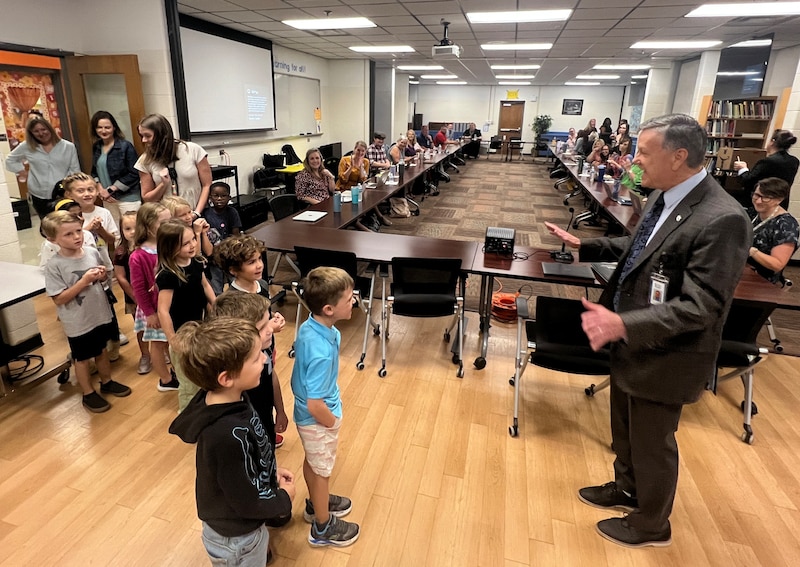
What’s one thing you’ve read that has made you a better educator?
Many years ago, I read “Good to Great,” by Jim Collins, about why some companies become great, while others merely remain good. It made me realize the importance of always striving for continuous improvement. “Good is the enemy of great,” he wrote, so we know if we are not improving, we are regressing. He also said that you have to be willing to “face the brutal facts” of why you are not where you want to be in order to achieve greatness. It is important to create a culture of collaboration and trust in order for continuous improvement to occur.
In education, as we constantly analyze and utilize data, we must do our best to determine the root causes of our successes, as well as what’s at the root of areas that need improving.
What were the biggest challenges for you as a school leader during the most recent school year, and how did you address them?
The negativity we heard from some corners about public schools and public school educators in Tennessee was definitely a challenge. Those comments were not based on fact but came from people who want to disparage public education — in my opinion, for their own benefit. We responded by accentuating the positive aspects of public education at every opportunity and highlighting the work of public school teachers in our district and across the state. Our school board members also spoke out publicly about the unfair and unfounded attacks on public education.
What were the biggest rewards?
One of the biggest rewards centered on the resolve of our teachers and leaders to work together for student success, despite the challenging political environment. Our parents were great partners and supporters as they gave our teachers perks on a regular basis and frequently volunteered their time. And we saw continued local investments in facilities for our students, including a new state-of-the-art performing arts center, a new gymnasium, and a new athletic complex. All of these facilities provide our students with high-quality venues to showcase their gifts and talents.
Many students are facing heightened challenges with mental health. What do you think are the root causes, and how is your team helping to support them?
Schools are a microcosm of society, and we’re seeing the struggles of many people from all walks of life. This was true even before the pandemic.
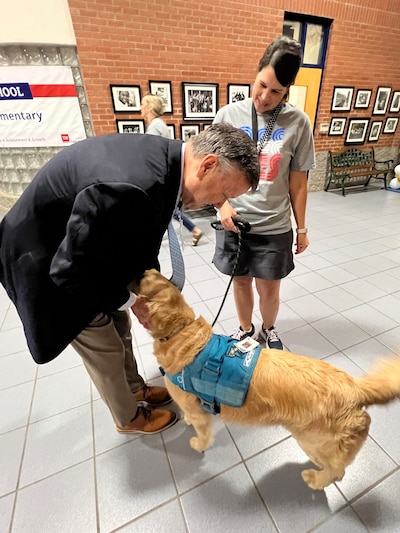
We provide training related to trauma and how best to help individuals and groups of students to overcome the residual effects of adverse events. Being better informed about the effects of trauma is important so we can recognize those signs and provide specific support.
Through a partnership with a local clinic that provides behavioral health counseling services, we now have a mental health therapist at every school in our district, most of them five days a week.
In 2018, we launched a therapy dog program with one canine at Johnson Elementary School. The initial plan was to add a dog each year. But seeing the clear positive impact, we fast-tracked the initiative and now have a therapy dog in each school. We even have a dog at the central office to provide support for both students and adults.
How do you take care of yourself when you’re not at work?
The goal is to stay active, whether it’s walking or working out. I enjoy playing golf, which gives me an opportunity to soak up some Vitamin D while trying to improve a not-so-good golf game. My wife, Kathy, and I like to travel, so we are always thinking about our next adventure.
What gives you hope at this moment?
My hope always lies in people and their human spirit. Even though there is a great deal of divisiveness today in our society, we believe that through perseverance, love, and character, we will return as a society to that place of mutual respect and understanding. Obviously, that doesn’t mean everyone will agree on every issue, but we can disagree without being disagreeable. As educators, we have to model how best to interact and effectively communicate with each other to enhance our community, state, and country.
Marta Aldrich is a senior correspondent and covers the statehouse for Chalkbeat Tennessee. Contact her at maldrich@chalkbeat.org.


